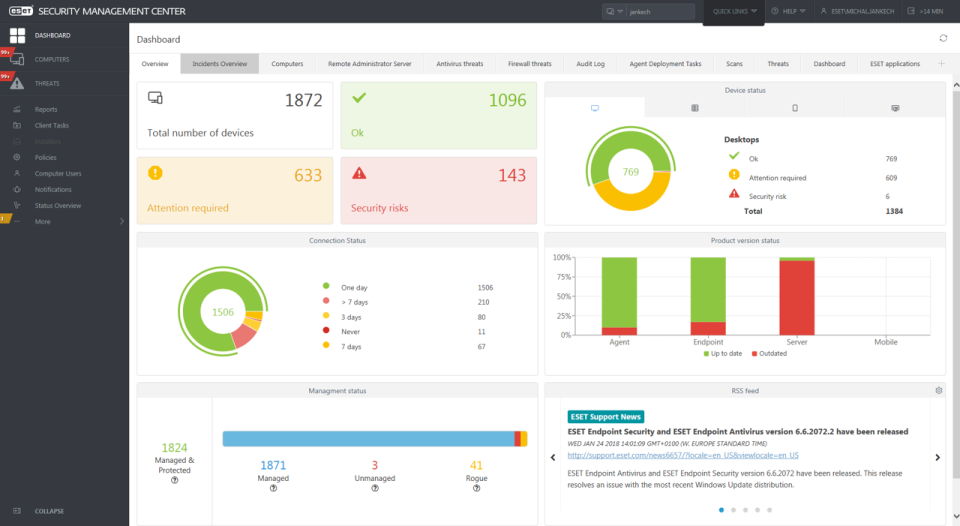

Modern EPPs harness the power of the cloud to hold an ever-growing database of threat information, freeing endpoints of the bloat associated with storing all this information locally and the maintenance required to keep these databases up to date. Endpoint protection platforms (EPP) work by examining files as they enter the network. Add in the opportunity, cost of reallocating resources from business goals to addressing threats, the reputational cost of a large-scale breach, and the actual financial cost of compliance violations, and it’s easy to see why endpoint protection platforms have become regarded as must-haves in terms of securing modern enterprises.Įndpoint security is the practice of safeguarding the data and workflows associated with the individual devices that connect to your network. The threat landscape is becoming more complicated, as well: Hackers are always coming up with new ways to gain access, steal information or manipulate employees into giving out sensitive information. These factors make enterprise endpoint security more difficult on their own, but they’re compounded by remote work and BYOD policies-which make perimeter security increasingly insufficient and create vulnerabilities. Businesses have also had to contend with not only a growing number of endpoints, but also a rise in the number of types of endpoints. First of all, in today’s business world, data is the most valuable asset of a company -and to lose that data, or access to that data, could put the entire business at risk of insolvency. To do this, they need to collaborate with each other and with other security technologies to give administrators visibility into advanced threats to speed detection and remediation response times.Īn endpoint protection platform is a vital part of enterprise cybersecurity for several reasons. Today’s endpoint protection systems are designed to quickly detect, analyze, block, and contain attacks in progress. Endpoint security is often seen as cybersecurity's frontline, and represents one of the first places organizations look to secure their enterprise networks.Īs the volume and sophistication of cybersecurity threats have steadily grown, so has the need for more advanced endpoint security solutions.


Organizations of all sizes are at risk from nation-states, hacktivists, organized crime, and malicious and accidental insider threats.
ESET ENDPOINT SECURITY VS INTERNET SECURITY SOFTWARE
Endpoint security has evolved from traditional antivirus software to providing comprehensive protection from sophisticated malware and evolving zero-day threats. Endpoint security systems protect these endpoints on a network or in the cloud from cybersecurity threats. Endpoint security is the practice of securing endpoints or entry points of end-user devices such as desktops, laptops, and mobile devices from being exploited by malicious actors and campaigns.


 0 kommentar(er)
0 kommentar(er)
